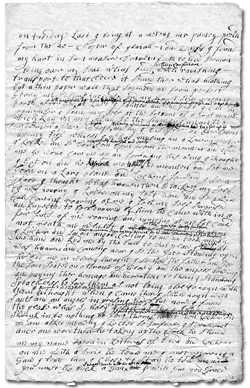 The very next verse (14) is about doctrine, and contrasts maturity with a childish tendency to go here and there theologically. Doctrine matters. The church is “the pillar and support of the truth.” A mature church knows what it believes, stands on the plain teaching of Scripture, and holds fast to the truth. A mature church withstands the almost constant pressure to minimize or dumb-down doctrine. In this regard, AFBC has been able to shore up weak areas and stand firm. But one must not stand firm once. We have learned that this area of doctrinal integrity requires ongoing vigilance.
The very next verse (14) is about doctrine, and contrasts maturity with a childish tendency to go here and there theologically. Doctrine matters. The church is “the pillar and support of the truth.” A mature church knows what it believes, stands on the plain teaching of Scripture, and holds fast to the truth. A mature church withstands the almost constant pressure to minimize or dumb-down doctrine. In this regard, AFBC has been able to shore up weak areas and stand firm. But one must not stand firm once. We have learned that this area of doctrinal integrity requires ongoing vigilance.
 To help in this area, in 2002, the elders proposed, and the membership unanimously adopted a new, lengthier doctrinal statement. The statement was new to us, but not new to churches like ours. We adopted as the core of this new statement The New Hampshire Baptist Confession of 1833. That very dull title labels one of the few American church creeds to be included often in short lists of great Protestant statements of faith. It is a creed known for its beauty and clarity. Touching it was a little scary, but we did add some things because of the need to respond to doctrinal controversies since the original was written. We are hoping to add an article on Creation at the May business meeting. It was not an issue in 1833, but it certainly is now!
A doctrinal statement isn’t window dressing. It is an anchor in storms and the polar star to guide us in a sea of false teachings and error. We go back to it again and again to get our bearings. Our teachers and ministry leaders should renew their familiarity with it from time to time. [A little secret: well written creeds make wonderful devotional material.] Read it carefully, line by line, and ask questions about what you don’t understand. The unity of the faith in essentials is a very great advantage for any church body.
Although our doctrinal statement does not use these words, its content does rest on the five solas of the Reformation. Sola means alone. The five solas relate to Scripture and salvation. Here they are:
- Scripture alone is the source of God’s authoritative truth.
- Christ alone is the author and finisher of our salvation.
- Grace alone saves us, nothing in us.
- Faith alone is how we receive Christ and His salvation.
- To God alone be glory.
Â
And because each of these solas is true, and we see that salvation is God’s work from beginning to end, we can say with confidence, “Soli Deo Gloria” — to God alone be glory.
Yours in Christ,
    ![]()
Originally printed in the Acton Faith Bible Church Pony Express. Vol. I, No. 02, May 2008.

